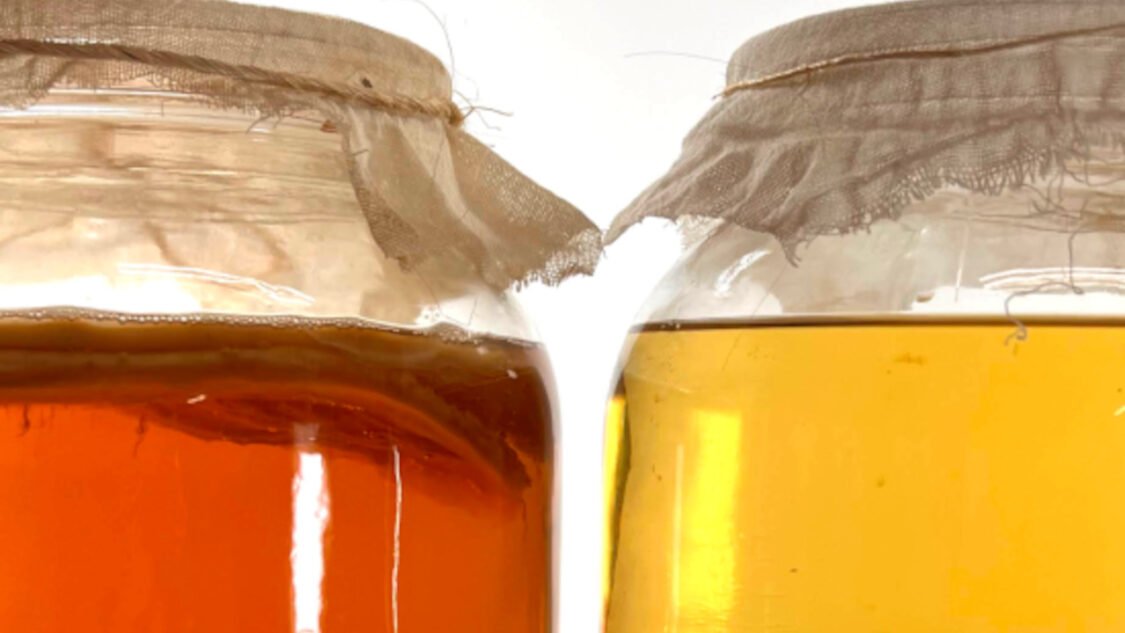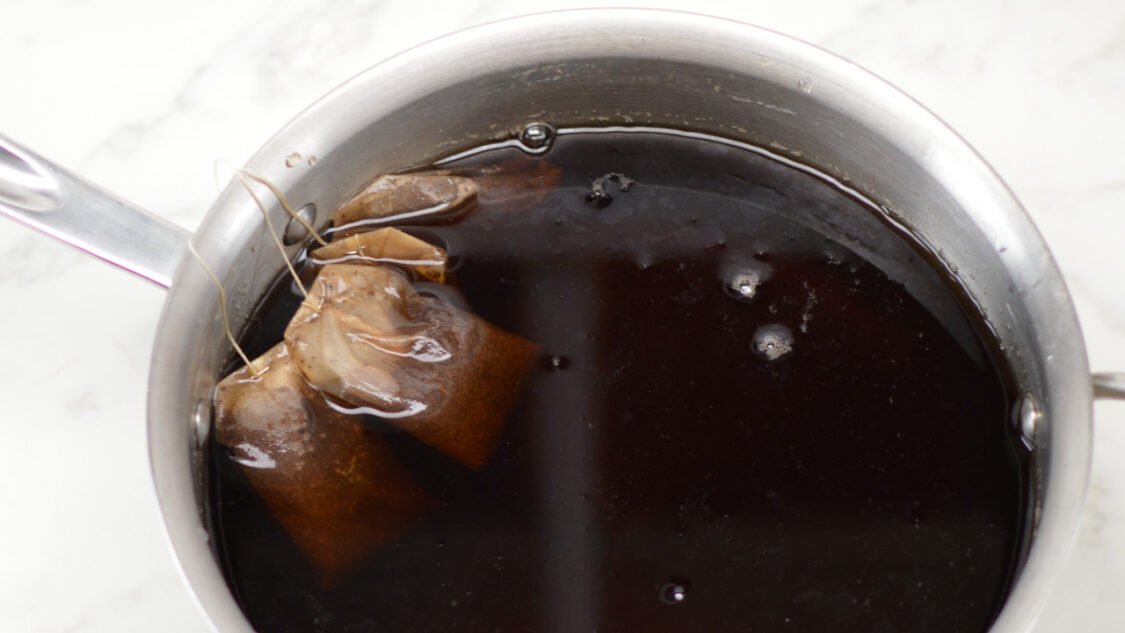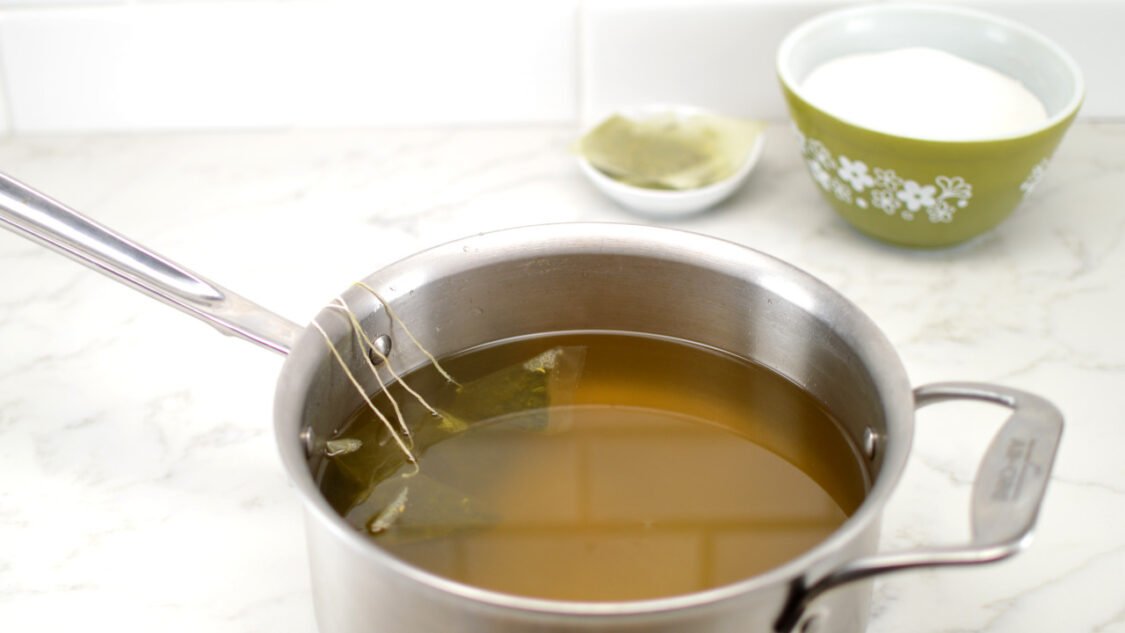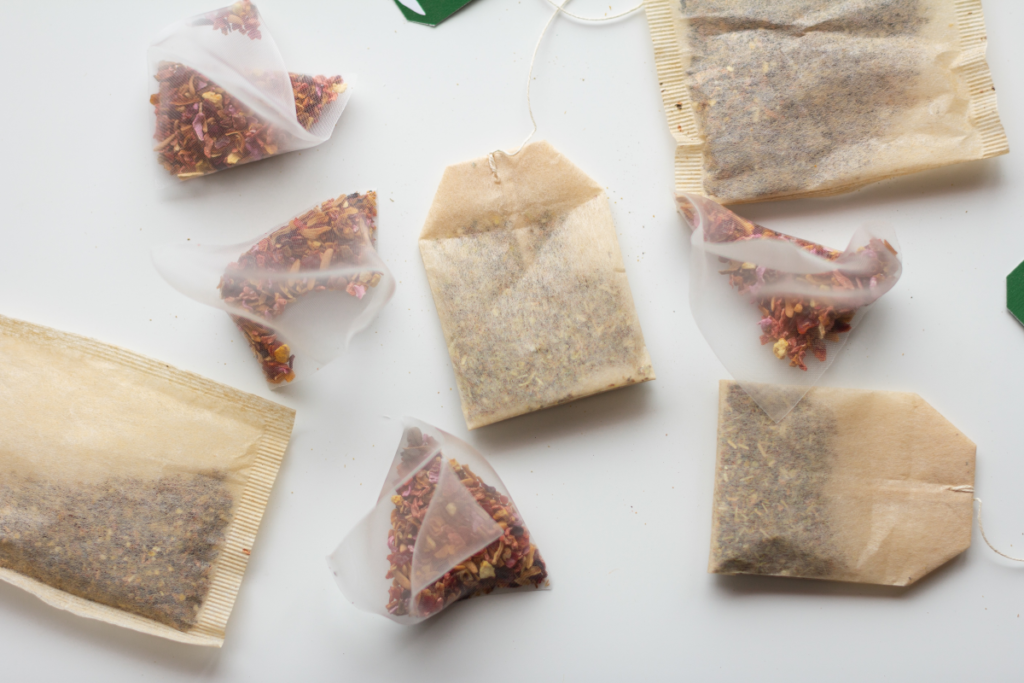Green Tea Versus Black Tea
What are the differences between green and black teas when it comes to brewing kombucha and SCOBY health?

Kombucha is usually recommended to be brewed from either black tea, green tea, white tea, oolong tea, or yellow tea. The common factor between these teas is that they all derive from the Eastern tea plant, Camellia Sinensis.
Leaves from the Camellia Sinensis plant are harvested and dried, either straight away, or undergo processes such as fermentation, roasting or curing. Which process the leaves are put through determines which type of tea is made.
Why Tea is Used in Kombucha
The kombucha SCOBY culture has adapted itself over thousands of years to feed off of the nutrients available from the leaves of the Camellia Sinensis plant. That is why it is highly recommended for ensured SCOBY health that one uses one of the teas which derive from Camellia Sinensis.
Other than lacking the nutrients needed for healthy fermentation, herbal teas can also contain potentially hazardous (to the SCOBY that is) elements, such as oils which can interfere with the SCOBY’s ability to absorb oxygen, or antibacterial properties which can harm the bacteria component of the SCOBY.
Green Tea Versus Black Tea for Kombucha
Black tea and green tea are the two most widely used teas for kombucha making, most likely due to peoples’ experience with it, knowledge of, availability and price they have become the “go-to” teas for kombucha. Of course in the kombucha community there are varying opinions of which variety produces a better and healthier SCOBY and fermentation.
Since there are a several different factors which could contribute to which tea type a person is using, whether it is organically grown and free of pesticides and other chemicals, what your SCOBY is used to etc., which makes it challenging which one of the two is better for the SCOBY health and producing strong fermentations.
Black tea is used most often for kombucha making since most of the guidance online suggests using it to start with. Black tea is used more often than green tea, which could be due to it being generally a more commonly stocked item in western kitchens and readily (and cheaply) available.
Since SCOBYs are living organisms they adapt over time to the conditions and tea type which they are in. Therefore, if a SCOBY culture has adapted itself to black tea, then it might undergo a slow down or reduction in overall health when placed in green tea – or one of the other tea types – and vice versa if it has adapted itself to green (or another type of) tea.

Black Tea Kombucha Characteristics
Black tea is successfully used to brew kombucha tea the world over. It is cheap and readily available. It is likely that the SCOBY which you started brewing with is most probably adapted to black tea, and therefore might do better in it. However, that is not a guarantee, as each SCOBY and situation is different.
Kombucha SCOBY Health and Black Tea
Many kombucha brewers believe that black tea is the best for SCOBY health and fermentation ability. To verify for certain for yourself, you would have to experiment and see what results you get from green versus black tea.
If you are using black tea and your SCOBY is fermenting fine and healthy (if you are not sure what a healthy SCOBY looks like you can check out how long does a SCOBY last?) and have no desire to change then don’t – black tea is perfectly acceptable to brew with and produces consistently great results.
The tannins in black tea causes brown staining within the SCOBY. This is in no way an indication of an unhealthy SCOBY culture or and indication that your SCOBY is unhealthy, but if you want to use extra SCOBYs in cooking, such as stir fries, then you might prefer the whiter ones produced by green tea fermentations.
Health Benefits of Black Tea
While it seems that the general idea that most people have with regards to green tea and black tea is that green tea is good for you, contains miraculous health benefits, and that black tea is bad for you, research says otherwise.
According to studies, both contain healthful properties. In equal measure, both green tea and black tea can also contain harmful substances or chemicals, introduced in the growing and manufacturing process. The established health benefits of black tea are said to be as follows:
- improves circulation and blood pressure
- helps regulate digestion and treat diarrhoea
- helps prevent tooth decay
- is a source of antioxidants
- assists to prevents high cholesterol
- aids in the prevention of breast cancer
- promotes bone health
- plays a role in the prevention of diabetes
See the following studies:
Long-term tea intake is associated with reduced prevalence of (type 2) diabetes mellitus among elderly people from Mediterranean islands: MEDIS epidemiological study: http://www.ncbi.nlm.nih.gov/pubmed/19259345
Green and black tea consumption and risk of stroke: a meta-analysis: http://www.ncbi.nlm.nih.gov/pubmed/19228856
The Taste of Black Tea Kombucha
Unflavored kombucha made with black tea usually has a stronger taste than that made with the other teas derived from Camellia Sinensis plant, as it is the most oxidized and contains tannins.

Green Tea Kombucha Characteristics
While not as prevalent as black tea, green tea is widely used for kombucha brewing, considered by some to be superior for the SCOBY health. Others prefer the flavor it gives, while finding that they need to periodically give their SCOBY black tea to keep it healthy, as it seems to need the nutrients contained within the black tea leaves for continued viability.
Kombucha SCOBY Health and Green Tea
As outlined above, whether green tea is better or worse for the kombucha SCOBY is up for debate.
In general, it seems that the larger balance of people making kombucha have experienced that black tea works better for their SCOBY than green for keeping it growing and producing optimum fermentation, but this could be related to the SCOBY they are using and should not be considered a rule.
However, what is consistent is that the SCOBY culture remains a pretty white creamy color when green tea is used when making kombucha. This is because there are no tannins present to stain the SCOBY.
If you get great pleasure in having as white as possible a SCOBY – or even require these in particular for cooking with – then green tea brewing would be the way to go providing that your SCOBY can handle it.
Fact: Jun Tea, a close cousin to Kombucha, brews only in Green Tea, unlike Kombucha which can brew easily brewed in many different types of teas.
Health Benefits of Green Tea
Similar to black tea, green tea has been consumed by people for thousands of years, it has now found its place in the media limelight as an effective health tonic. While it is widely known that it can be good for keeping the skin youthful, and aid in weight loss, green tea has other health benefits too.
- contains high levels of antioxidants
- helps lower cholesterol
- boosts the immune system
- promotes healthy skin
- boosts the metabolism which can aid in weight loss
- aids in normalizing high blood pressure
- slows tooth decay due to antibacterial properties
- assists in brain functions
- promotes a healthy heart
Green Tea’s L-Theanine benefit
Green tea leaves contain L-theanine, an amino acid that is an anxiety reducer and a natural relaxant. Studies show that L-theanine combats caffeine’s stimulatory effects by promoting alpha brain waves, which calm the mind in a similar manner as meditation 30-40 minutes after ingestion.
Additionally it ramps up the body’s production of dopamine and serotonin which results in improved memory and cognitive performance.
Studies have shown that when taken together L-theanine and caffeine improved “cognitive performance and mood.” Researchers also believe that polyphenols present in the tea not only deliver health benefits but mitigate negative effects that caffeine may have when consumed alone.
The Taste of Green Tea Kombucha
Green tea lends more ‘grassy’ or ‘earthy’ flavors to batches of green tea kombucha. Some people perceive it as more delicate and nuances as well with a lighter/fresher taste and more effervescent quality
Taste is a matter of personal preference, so you should try them both side by side and determine which is your favorite.
Switching between Black & Green Tea
If you have been brewing with black tea and want to see what results you get from brewing with green tea, or vice versa, it is perfectly safe to switch for your new batch and see how you like the finished ferment. However, if for whatever reason you want to change the tea you use completely (remember it must be one from the Camellia Sinensis plant) then it might be a good idea to do so gradually.
As it appears that SCOBY cultures adapt to their environments and start to function to the best of their ability in the circumstances which they are usually in, there is a common belief that if you want to change to another one of the tea types, and experience continued SCOBY health, you should do it gradually.
This method employs using a combination of the two teas, and slowly increase the ration of the tea you want to switch to. Increasing the percentage by 10% for each new batch is a commonly used ratio.
However, if you merely wish to have some variation, you can always change teas for a few brews, and then put your SCOBY back into a batch of black (or if your usual choice is green, then green) tea to regain its strength from the nutrients it is used to.

Mixing Tea Blends
Kombucha very well to experimentation and you can get some of the most unique and delicious flavor profiles by experimenting with different tea blends as your kombucha tea base. The subtle flavors can completely change how your end result kombucha tastes and even impact the second fermentation taste.
Kombucha brewers often talk about the power of mixing in various spices, herbs, and fruits during the Second Ferment to increase the flavor profile of your Kombucha. Often overlooked but just as powerful, though much more subtle, is to experiment with different tea types for the base tea mix — using high quality exotic teas as the tea base or blending in black and green teas with other exotic tea types.
Mixing Black and Green Teas Together
One strategy some Kombucha brewers utilize to take advantage of both tea types is to blend both Black and Green tea for your Kombucha. Your SCOBY will do perfectly well with such a blend and there will be subtle flavor changes.
Some ideas for mixing teas:
Indeed, you can extend the tea blending to include other types of teas. For example:
- Black Tea + Oolong Tea blend
- Black Tea + White Tea blend
- Green Tea + White Tea blend
- Green Tea + Oolong Tea
- Black Tea + Puri tea
Final Thoughts on Green Tea vs Black Tea for Kombucha
It is possible to make good kombucha with all of the Camellia Sinensis tea varieties. It you want to know more about what results to expect from the other teas’ in this family, you can also read What is the Best Tea For Brewing Kombucha. As all SCOBYs and situations are unique, which tea is best for kombucha brewing is a matter of preference and circumstance.
The best information is that which is acquired first hand, so experiment and see what tea is best for you and your SCOBY!
Helping you learn to brew kombucha, find inspiration for new kombucha flavors and use kombucha to make kombucha mocktails




